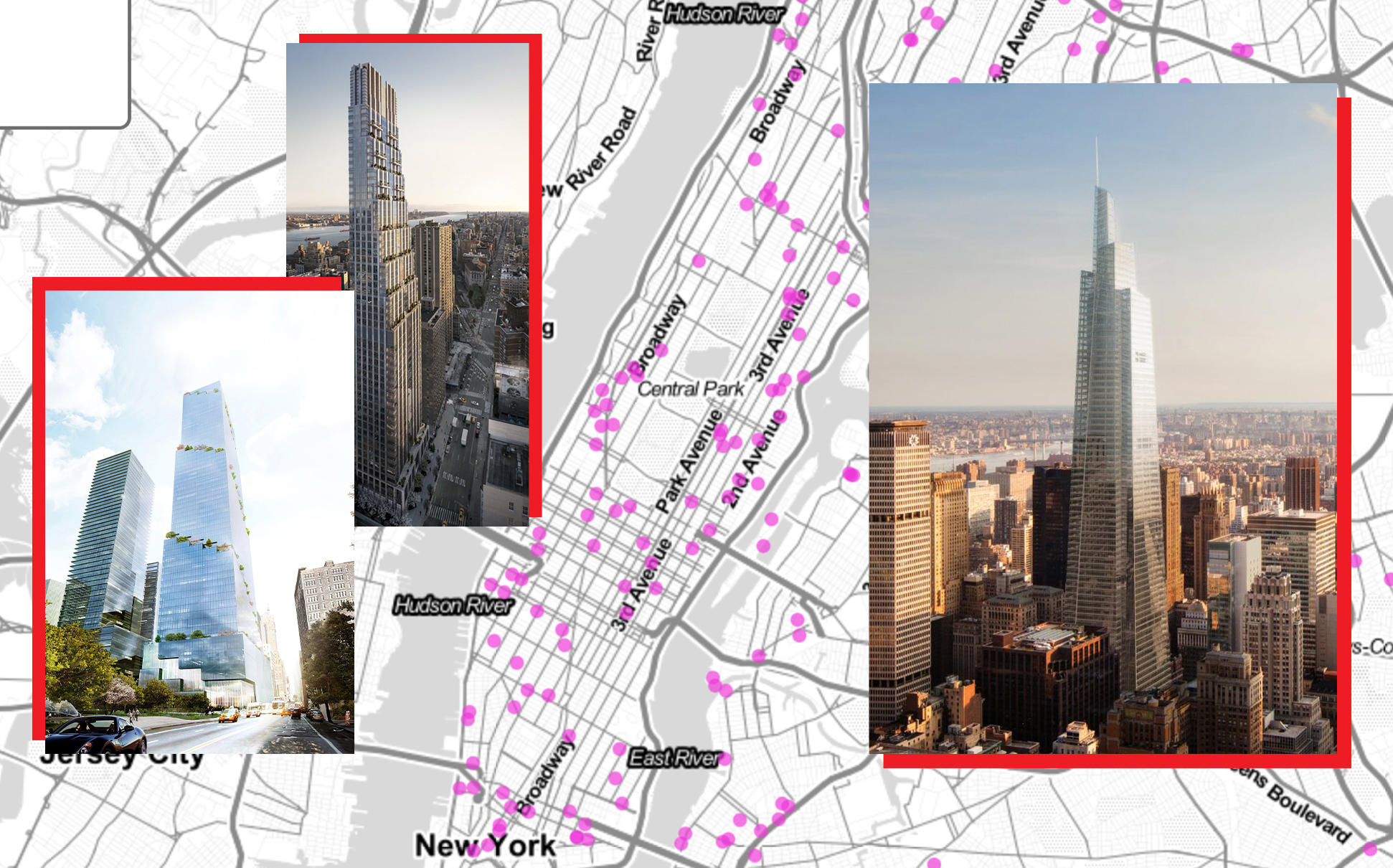A controversial Upper West Side condo tower is one of nearly 900 projects that have secured exemptions from Gov. Andrew Cuomo’s order shutting down most types of construction throughout the state, according to a map released Friday by the city’s Department of Buildings.
Certain work on SJP Properties and Mitsui Fudosan America’s 200 Amsterdam Avenue — which faces potential deconstruction after a judge ruled the 668-foot tower was about 20 stories too high — is allowed to continue after the city granted the project essential status.
SJP’s tower is one of 402 projects to receive essential status to do “emergency” work. “The majority of site safety work for 200 Amsterdam will be completed today,” a spokesperson for the developers said. According to the Department of Buildings, workers at the site are pumping water out of elevator pits to prevent electrical damage.
Other notable projects that can remain active for that reason include SL Green’s Midtown East office tower One Vanderbilt and Tishman Speyer’s twisting office tower at 66 Hudson Boulevard, known as the Spiral.
A representative for SL Green indicated that it received approval to continue work on “transit-related spaces and base building life-safety systems” at One Vanderbilt. A statement from Tishman Speyer said, “Construction work on The Spiral has stopped. We are in the final stages of securing the site and completing all of the tasks mandated by the DOB for stalled projects.”
Cuomo’s construction shutdown to curb the coronavirus pandemic was simply the latest hurdle for the developers of 200 Amsterdam. SJP and Mitsui are still waiting on the courts to decide the 52-story building’s fate after a judge ruled in February that the city erred in letting them build so high. The developers and the de Blasio administration are appealing the decision.
When the state shut down non-essential construction late last month it exempted work for utilities, transit, healthcare and homeless shelters, as well as emergency work and affordable housing. Earlier this week, the Department of Buildings defined emergency work as restoration of utilities services or work that would pose a public danger if left undone.
The city considers residential projects affordable if at least 30 percent of the units are income-restricted or have a mandatory or voluntary inclusionary housing agreement.
According to the buildings agency, construction is continuing on 157 affordable housing projects, including Related Companies’ 15 Hudson Yards, a 300-unit condo and rental tower building, of which 107 units will be set aside for tenants making between 50 percent and 60 percent of the area median income. It’s unclear what work is being done at the project, which opened last year, but the agency approved an application for renovation work — to install a new dropped ceiling — on a condo unit in the tower Wednesday. There are another 170 affordable projects that are labeled as emergency work on DOB’s map as of Friday, where work will be permitted to continue.
Buildings data indicates construction on three homeless shelters is ongoing. Of the essential sites, 262 involve healthcare facilities and 63 utilities.
“An unprecedented crisis requires an unprecedented response,” Commissioner Melanie La Rocca said in a statement. “To help keep New Yorkers safe during these uncertain times, we will be out in force to confirm non-essential sites have been closed down, and essential construction work continues in a safe manner.”
Sites that don’t comply with the new rules face fines of up to $10,000. The agency has also rescinded permits for after-hours work and will only approve those that are for essential or emergency work.
The state initially exempted all construction but added restrictions after backlash from local officials, workers and workers’ families. Since the governor’s order, individual construction workers have contacted The Real Deal to express fear about contracting Covid-19, citing the difficulty in keeping a safe distance from others while working on crowded construction sites.
Some sites have temporarily shut down voluntarily after employees tested positive for the virus.
Sylvia Varnham O’Regan contributed reporting.
Write to Kathryn Brenzel at kathryn@therealdeal.com
